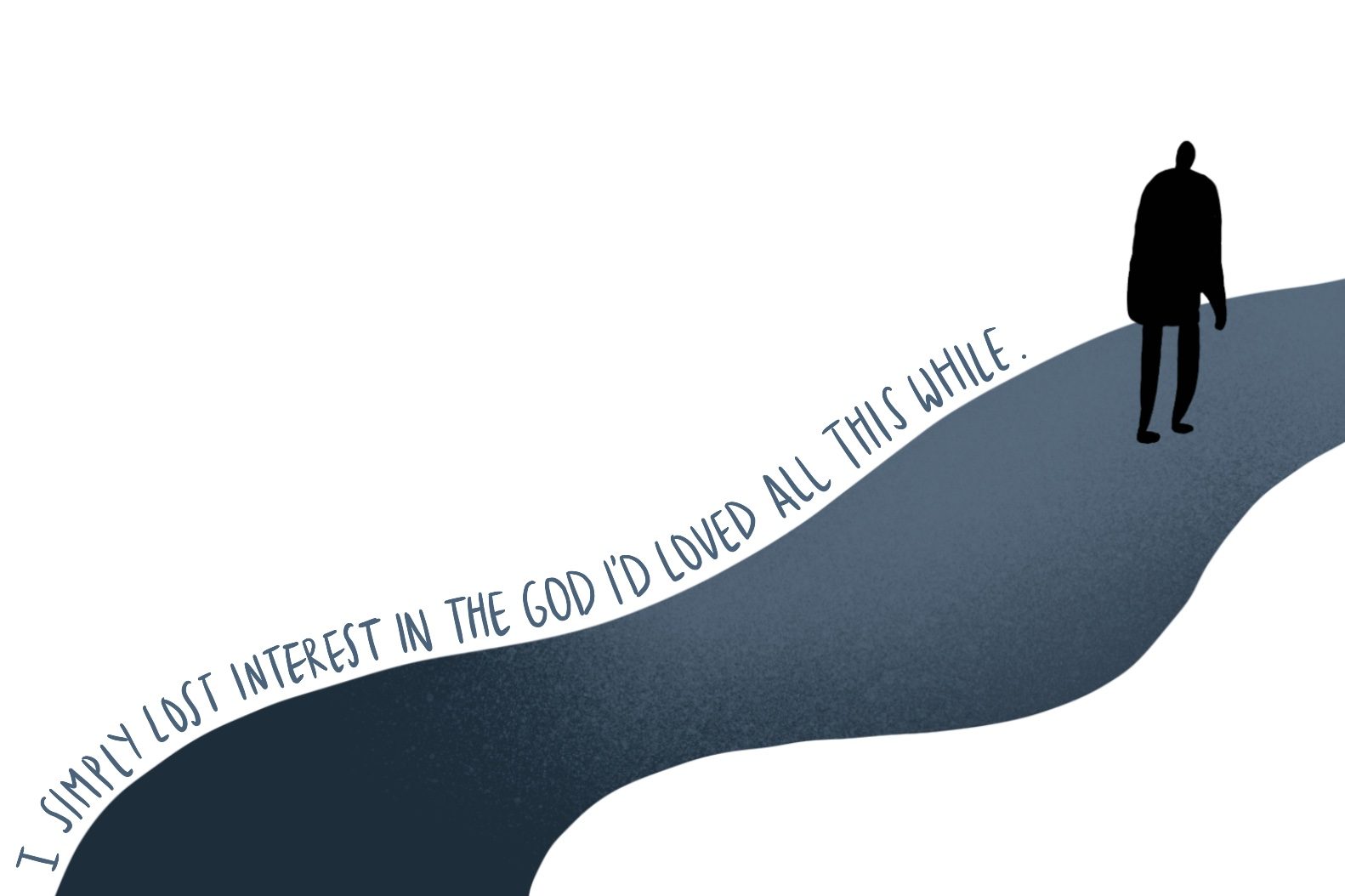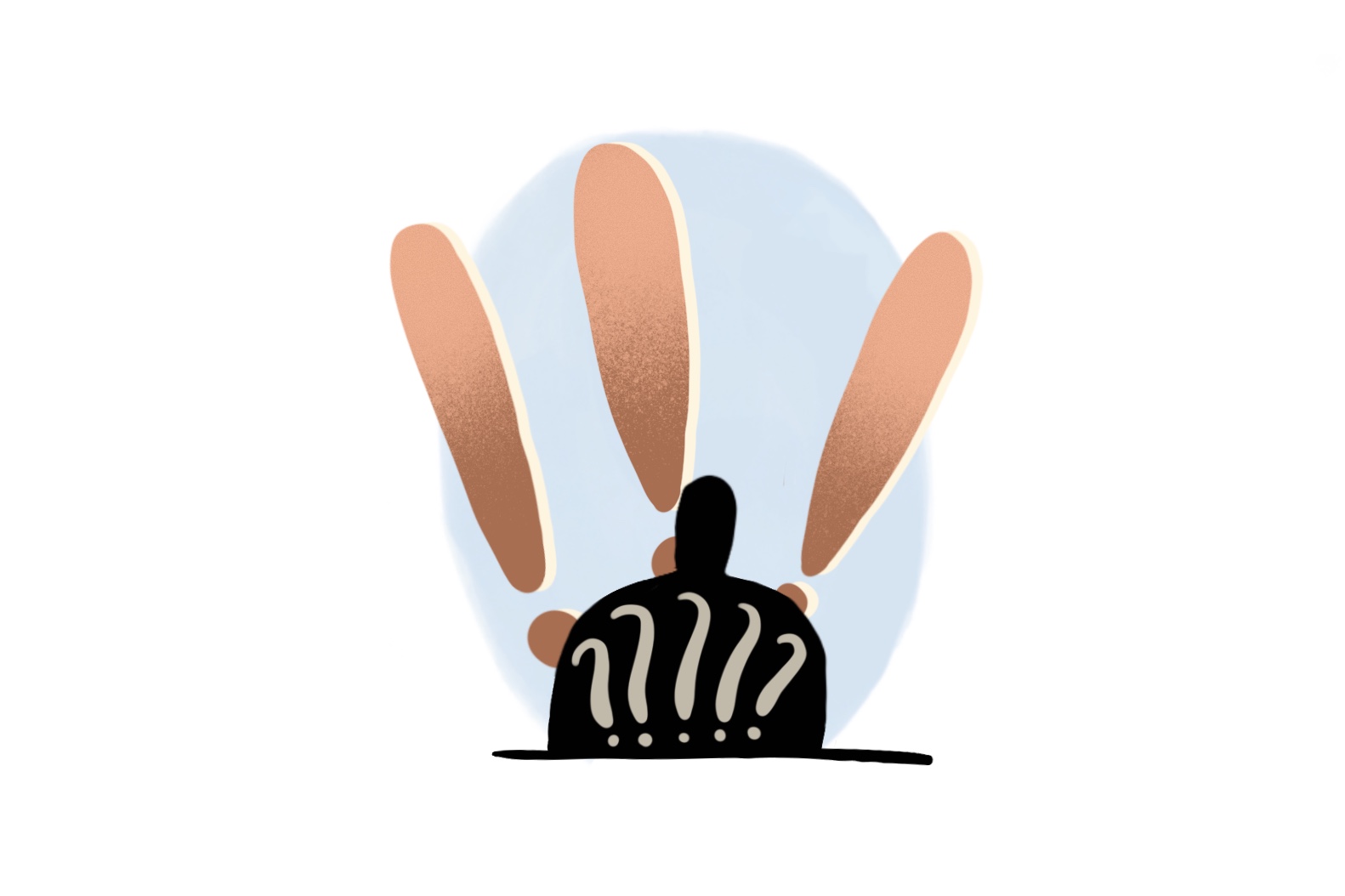When I was 16, my classmate who was an atheist shared a post which appeared on my social media feed.
The post said that according to the Bible, one was not allowed to eat pork and shellfish (Leviticus 11:7, 12) or wear mixed fabrics (Leviticus 19:19). Checking the Bible, I found that those verses did say those things.
It hit me like a sucker punch. I was confused. Had I been sinning all my life? If so, why didn’t I know this earlier?
The committed Christians I knew consciously ate pork and seafood, and yet these same people truly loved God and man, and upheld biblical standards that were different from the world around them.
Were they sinning too?
That was just the beginning.
As doubts like these accumulated, each one made me numb and paralysed. Though physically, life went on as usual, I started to lose all my faith in God.
In my shock, I couldn’t care less whether God existed or not. I couldn’t bring myself to pray to Him, to worship Him or to believe in Him unlike before. He no longer felt real, loving or just.
I was turned off. I simply lost interest in the God I’d loved all this while.

But I was born in a Christian family.
Growing up, I had a carefree, peaceful life. I enjoyed church. I attended service, sang worship songs and took part in cell activities.
Outside of church, there would be sporadic bursts of faith, but most of the time it was rather passive. Life was good, so it was easy not to turn to God regularly. Sometimes, before exams or bedtime. I prayed.
Having said that, I never sought God regularly outside of these times, except when I occasionally thanked Him for when something good happened.
For me, I just lived life knowing that Jesus said some cool stuff and did some cool things, that Jesus is the Son of a God who is real, God is good and all that.
Life was good, so it was easy not to turn to God regularly.
So, paralysed with doubt at my first big tests of faith, all I could do was to call to mind the memories of God’s presence and provision throughout my life.
Those times where I felt God’s hand moving in my life, in the choices I made and the experiences I had.
Those times I felt the transcendent peace that Jesus described in John’s gospel (John 14:27).
That time I inexplicably cried during a children’s service. I now know that it was because I was moved by the realisation that Jesus loved even ordinary kids like me so much.
Even as a child, I felt and was overwhelmed by His boundless love.
Those experiences were as real as my doubts, but more firmly ingrained in me.
I realised it would be an immense waste if I were to abandon eternal treasures over temporal troubles.
Therefore, I decided to harness my positive memories of God to fuel the effort to find strong, biblical answers for my doubts.

In doing so, I’ve come to follow a general framework.
- Examine our hearts: What is the point of the question? Is it to know God better, or to justify our own sinful ways? Are you really open to changing your mind if you realised what you had believed all this while was not honouring God?
- Look up credible sources: Test their content against Scripture and examine the fruit they bear.
- Lean on the Spirit: Faith is the final step. Without it, all the knowledge in the world counts for nothing.
As an example, here was how I addressed the food laws.
Examining my heart, when I addressed the food laws, I had to ensure that I was not in it to affirm my own biases, but to find out what God really had to say about this, and be ready to follow through without hesitation.
Looking up credible sources, I began taking action that was grounded in faith. I used content grounded in biblical truth, tested them against Scripture and reflected on them in prayer.
I mainly used established publications, and looked at their other content to ensure that they were biblical. I also watched videos and sermons from established apologists with the same approach.
And I leaned on the Spirit in my search for answers. This can only be done by consulting with God Himself, through prayer and reading His Word.
Sometimes, even after much effort, there could still be unaddressed gaps, often bringing me to my wits’ end.
This reminded me that I cannot overcome doubt by my own strength. Mere human intellect isn’t enough, I have to surrender it all to God.
Whenever I did so, He provided the way forward through the missing pieces.
At times, I had to revisit things I thought I’d addressed before. Such situations helped me to realise that I cannot place my trust in mere arguments. I had to lay down my assurance in my previous efforts and come to God fully surrendered, without idols and ready to learn once more.
It was then that my faith was reaffirmed and my posture was corrected.
And then, the grounds for my beliefs became stronger.

I’ve also come to learn that the real revelation was not so much the specific arguments I grappled with — but the God they pointed to.
As an example, I realised that Jesus has declared all foods clean (Mark 7:18-19).
Like how a fulfilled promise doesn’t need to be carried out again, Jesus fulfilled the Law (Matthew 5:17), so we are no longer bound to the food laws.
The food laws were originally meant to emphasise the Israelites’ status as a people set apart for God. We can eat anything we want as long as we do not stumble others (1 Corinthians 10:25-32).
Jesus’s sacrifice freed us from the Law that exposed the depth of our sin, pointing to our need for Him.
In conclusion, I believe that trials like doubt can be a refining fire (Zechariah 13:9, Malachi 3:3) that help us draw closer to Him.
The way we handle doubt can be a tool that helps to distinguish between the seeds that fell in good soil from the seeds that fell on rocky ground and amongst thorns (Matthew 13:3-8, 19-23).
Every time I battle and overcome doubt, I gain a deeper understanding of who God is.
As I put my faith in action (James 2:17) and work out my salvation with fear and trembling (Philippians 2:12), my walk with God also becomes deeper and richer.
Every time I battle and overcome doubt, I gain a deeper understanding of who God is.
And as I studied and meditated on God’s Word, working my way from milk to solid food (Hebrews 5:12-14), I came to see the beauty of the redemptive story with my own eyes.
Thus, my relationship with God that has become more active and less passive, seeking God in the good, the bad and the mundane.
Through these experiences, I’m more assured than ever that God is real. He is loving, just and is always by our side.
I can sing, pray and worship with a conviction built up through adversity, rooted in a faith that is real, substantiated and firmly grounded in God’s goodness and grace!
- Think of one thing in life that brings you doubt about God.
- Grapple with it this week, using Joel’s suggested framework: Examine your heart, look up credible sources, lean on the Spirit.
- Journal down what God showed you through this experience.









